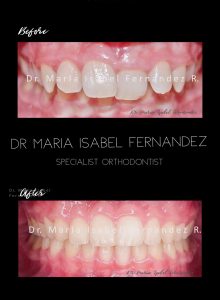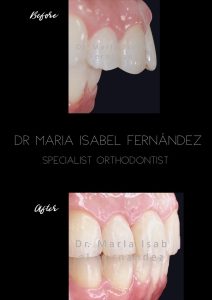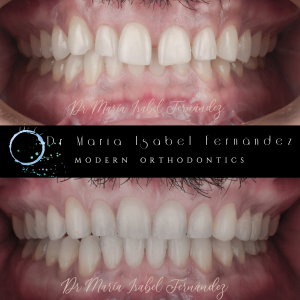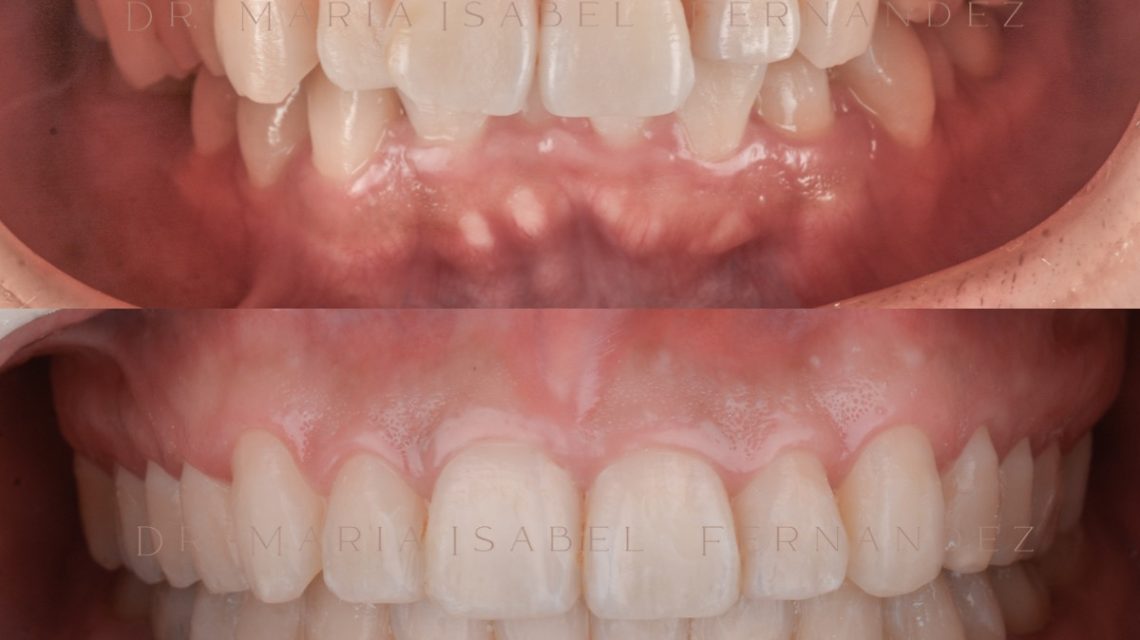Is the bite situation where the top front teeth excessively overlap the bottom front teeth when the back teeth are closed. Often the top edges of the lower teeth bite into the gum tissue in the roof of the mouth. While a deep bite may or may not be an esthetic concern for most patients, its presence usually indicates other problems should be addressed. The look of a deep bite is less concerning to orthodontics than the damage a deep bite can do to your long-term oral health.
What Causes A Deep Bite?
Deep bites are often caused by a lower jaw that is shorter than the top jaw. When the lower jaw is shorter than the upper, the upper teeth are further forward, so the lower teeth continue to grow until they hit the back of the upper teeth or the roof of the mouth. Deep bites can also be caused by missing back teeth that create a condition similar to having a short lower jaw. Another thing that can cause a deep bite is powerful biting muscles, common in patients who clench or grind their teeth.

Why Do I Need To Fix A Deep Bite?
Ignoring a deep bite can lead to significant issues down the road, including:
-
Crowded or crooked teeth:
As the lower jaw is being compressed by the upper jaw, as a consequence the lower teeth don’t find a space where to be properly placed and this causes the appearance of crowding in the lower teeth, mainly in the front segment.
-
Temporomandibular Joint (TMJ) Issues
– A deep bite puts the joints and muscles of the face in an unnatural position. Since the jaw must work harder to close, the muscles can become sore, and the joints themselves are stressed, causing damage to the cartilage and bone.
-
Tooth Loss
– A deep bite tends to lock patients into a specific bite pattern with little room to move. This continued pressure continually in the same location can wear away the bone and loosen the teeth. Also, if the lower teeth hit the gums behind the top teeth, it can cause damage to the gums and eventual tooth loss.
-
Gum Recession and Periodontal Disease
– When a patient with a deep bite grinds their teeth, it can cause the gum tissue to pull away from the teeth. When the gums start to pull away, bacteria can get caught and create a chronic gum infection. Gum disease can cause bone loss resulting in tooth loss.
-
Sores and Ulcers
– Depending on the severity of the overbite, the lower front teeth may scrape the roof of the mouth, causing sores and ulcers, making eating uncomfortable, and can lead to infection.
-
Excessive Wear
– When the bottom teeth sit behind and even touch the top teeth, the lower front teeth tend to wear down more quickly.

Treatment
Treatment for a deep bite can usually be done with orthodontic treatment alone, and both braces and Invisalign work well to correct deep bites. Due to the complexity of orthodontic issues, you should see a certified orthodontist in order to proceed with any type of orthodontic treatment. The treatment choice will depend on the extent of your deep bite, your facial profile, and likely growth.
Complex cases and cases that present with other issues may require additional treatment:
- If the deep bite results from worn or missing back teeth, the first step is to correct the bite’s function by restoring and/or replacing the teeth with crowns, implants, or bridgework.
- If the back of the upper teeth and the front of the lower teeth are very worn due to rubbing against one another, these teeth may need to be restored with composite bonding, porcelain veneers, or dental crowns to improve.
- In severe cases, orthognathic surgery may be the best solution.

Feel always free to contact us and we will be more than happy to help you arrange your “Orthodontic Consultation” appointment.
…Ftom Dr. Maria Isabel and all the rest of the Dental Team at SMILE STUDIOS
Specialist Orthodontist



